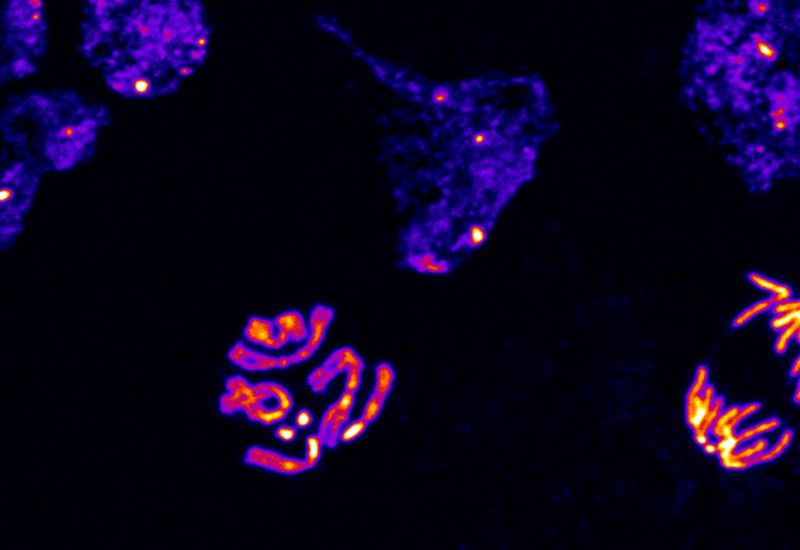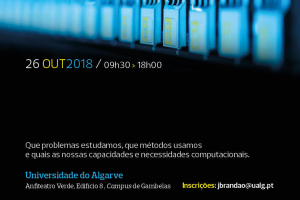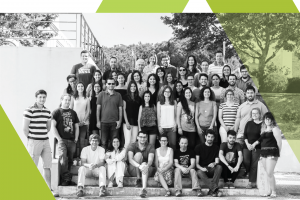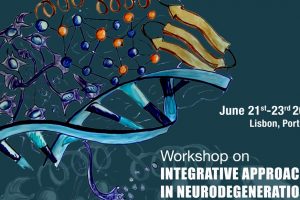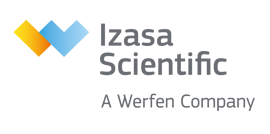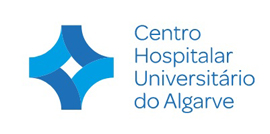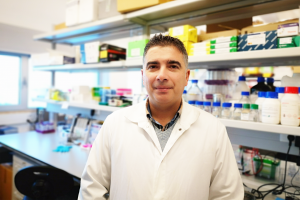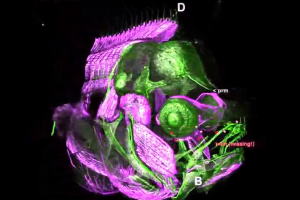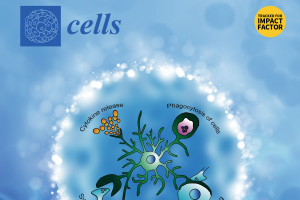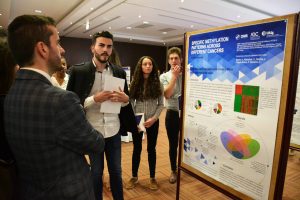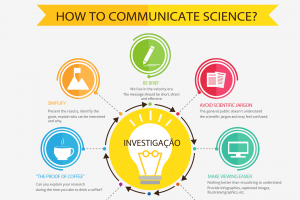Researchers found that guardians of cell division can also contribute to an increase in genetic errors
A research team from the Instituto Gulbenkian de Ciência (IGC) and the Centre for Biomedical Research (CBMR)/ University of Algarve (UAlg), lead by Raquel Oliveira (IGC) and Rui Gonçalo Martinho (CBMR/ UAlg), found that a mechanism of cell division control can be associated with an increase of errors in chromosomes distribution. This process can influence the development of diseases, such as cancer, infertility and some congenital disorders. The study will be published on the 16th of August in the Current Biology journal.
In order to divide into two equal cells, a mother cell must replicate its DNA and divide it equaly. Correct division is important to assure that new cells receive the exact number of chromosomes – the structures where our genetic information is located. When failures occur during this process, the associated errors can contribute to the development of several diseases.
The research now published focuses on a regulation mechanism called the Spindle Assembly Checkpoint, or Mitotic Checkpoint, that is crucial to guarantee the correct separation of chromosomes. This checkpoint works as a sort of traffic warden that stops the traffic whenever there is a problem in order to prevent accidents.
So far, it was established that the mitotic checkpoint is important to prevent errors in chromosomal distribution during cell division, as it halts the completion of mitosis if errors are present. The research done by this team shows that it is not always like that, and sometimes, the action of the traffic warden can be counterproductive. The researchers revealed that this was the case when cells presented problems in the “glue” that joins chromosomes. When facing these irreversible errors, the continuous action of the mitotic checkpoint can lead to an increase in genetic errors.
As Rui Martinho explains “if the problem is irreversible and the traffic warden stops the traffic continuously, the solution is worse than the problem, exacerbating the probability of serious accidents to occur”.
The research, performed with the fruit fly Drosophila melanogaster, comes in this way to stir up a scientific dogma: that the mitotic checkpoint is always beneficial for the dividing cell.
This study shows that “errors associated to the loss of cohesion between chromosomes, common to several human disorders, may be partially corrected by removing the traffic warden, as opposed to what we would expect”, explains Raquel Oliveira.
It should be noted that the mitotic checkpoint is currently a target for cancer therapy. The research team is now testing if the observation described in the fruit fly also verifies in human cells. Would that be the case, it would help us understand the interaction of the mitotic checkpoint and chromosome cohesion in the development of several human disorders. These results may also contribute to the design of therapeutic strategies, both in cancer and in other disorders associated with errors in cell division.
* Silva, R.D., Mirkovic, M., Guilgur, L.G., Rathore, O.M., Martinho, R.G. and Oliveira, R.A. (2018) Absence of the Spindle Assembly Checkpoint restores mitotic fidelity upon loss of sister chromatid
cohesion. Current Biology 28: 1-8. https://doi.org/10.1016/j.cub.2018.06.062
Researchers found that guardians of cell division can also contribute to an increase in genetic errors.


